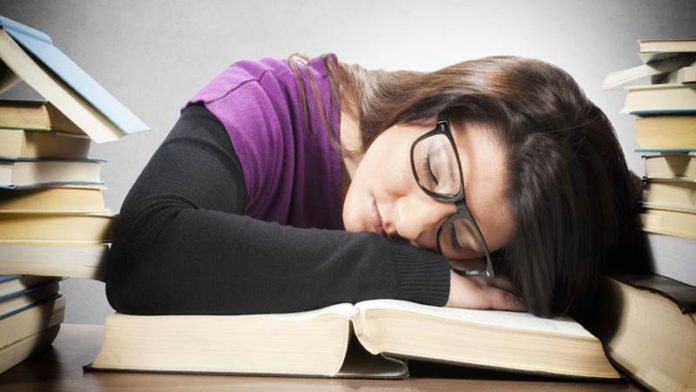Parents, educators, and kids often wonder why teenagers seem so tired all of the time. Mostly, tired teens report fatigue or sleepiness, or often both. Up to 40% of healthy teens experience regular sleepiness. Tired teens also find it difficult to concentrate, learn or stay awake in class.
In a new study by the University of Pennsylvania and the University of York, scientists found that tired teens are more likely to commit crimes. They are tended to exhibit more anti-social behavior such as lying, cheating, stealing and fighting. Although there are various studies on the sleep problems. But this study only states that- how often a child gets drowsy during the day.
Professor Adrian Raine from the Richard Perry University said, “It’s the first study to our knowledge to show that daytime sleepiness during teenage years is associated with criminal offending 14 years later.”
- ALSO READ: Lying Changes Your Brain
Scientists primarily noticed cross-sectional studies that state multiple behaviors at a time. For example, connecting sleep and behavioral problems in children. They then dig out the data that was collected 39 years earlier to find out a link between these and illegal behavior in adulthood.
Scientists involved 105 boys with the age of 15 in the study. They then asked students to rate their degree of sleepiness on a 7-point scale. The 1st point on the scale indicates unusually alert whereas the 7th point indicates the level of attention a person pays to a tone being played over headphones.
Raine said, “This represents the brain-attentional function.”
Scientists then collected data about anti-social behavior. Both self-reported from the study participants, as well as from two or three teachers who had worked with each teen for at least four years.
Some kids did not want to talk about their anti-social behavior. So, teachers here reports really come handy. The teacher and child reports correlated quite well in this study, which is not usual.
Scientists then searched for criminal records at the Central Criminal Records Office in London. Their aim was only to find out which of the original 101 had a criminal record at age 29. Scientists found that 17 percent of participants had committed a crime by that point in adulthood.
Through this data, scientists found a link about student’s socioeconomic status.
“Is it the case that low social class and early social adversity results in daytime drowsiness, which results in inattention or brain dysfunction, which results 14 years later in crime? The answer’s yes. Think of a flow diagram from A to B to C to D. Think of a chain. There is a significant link,” he added.
Scientists found that tired teens had higher odds of a life of crime later. Knowing this could potentially help with a simple treatment plan for children with behavioral issues. They are recommended to have more sleep at night.
Raine said. “More sleep won’t solve a crime, but it might make a bit of a dent.”
